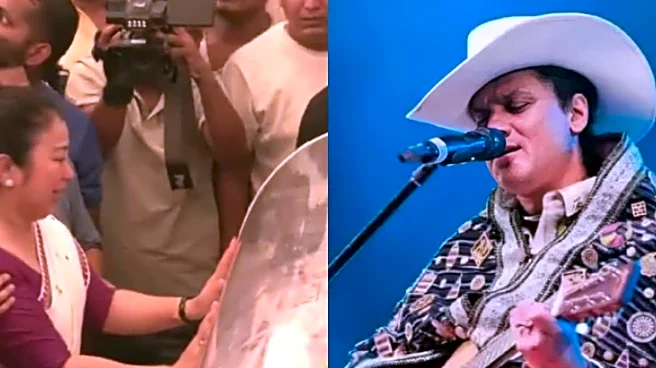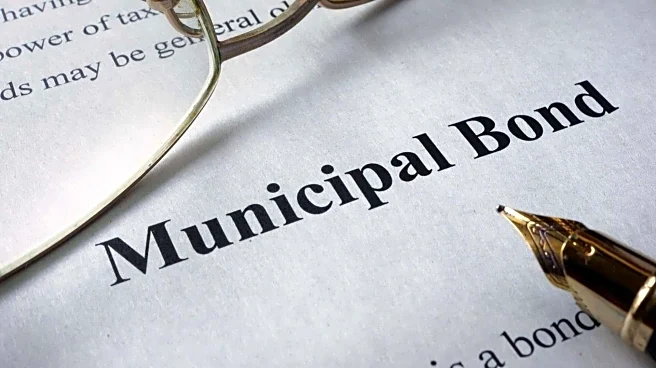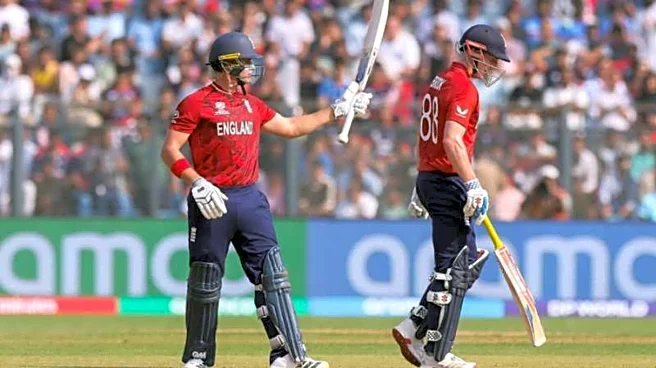Zubeen Garg’s tragic and untimely demise left everyone in shock. Today, Sunday, September 21, Assam woke up to heartbreak as the mortal remains of the singer arrived in Guwahati. Before the icon could be laid to rest, the entire city, along with his family, paid their final respects, and the heartbreaking visuals are circulating on social media.
Thousands of fans and well-wishers gathered at the Arjun Bhogeswar Baruah Sports Complex (Sarusajai Stadium) in Guwahati to pay their final respects. The visual of his wife, Garima Saikia Garg, breaking down in tears, has left the internet heartbroken. In a clip shared by news agency ANI, Zubeen Garg’s body was placed in a glass casket, with Garima constantly placing her palms on top of it and crying.
The agency post also shared that the late singer’s body was brought inside his residence for his family and close relatives to bid him adieu.
#WATCH | Assam: Wife of singer Zubeen Garg, film producer Garima Saikia Garg pays a tearful tribute to her husband, at their residence in Guwahati. pic.twitter.com/aprGvhJUkE
— ANI (@ANI) September 21, 2025
The caption of the post read: “Wife of singer Zubeen Garg, film producer Garima Saikia Garg, pays a tearful tribute to her husband at their residence in Guwahati.”
View this post on Instagram
Zubeen Garg’s death
Renowned Assamese singer Zubeen Garg tragically passed away following a scuba diving accident in Singapore. He had travelled to Singapore to participate in the North East Festival, where he was scheduled to perform on the day of the incident.
Zubeen Garg’s professional life
Zubeen Garg was a versatile Indian singer and musician. He began singing at the age of three, with his first training coming from his mother. He later studied tabla under Pandit Robin Banerjee for 11 years. Guru Ramani Rai introduced him to Assamese folk music. Garg also started composing songs during his school days, often giving them to other singers to perform.
While Garg primarily worked in Assamese, Bengali, and Hindi films and music, he had performed in over 40 languages and dialects, including Bishnupriya Manipuri, Adi, Boro, English, Goalpariya, Kannada, Karbi, Khasi, Malayalam, Marathi, Mising, Nepali, Odia, Sanskrit, Sindhi, Tamil, Telugu, and Tiwa.


/images/ppid_a911dc6a-image-177073402755726223.webp)
/images/ppid_a911dc6a-image-177073406528147283.webp)
/images/ppid_a911dc6a-image-177073402422810189.webp)


/images/ppid_a911dc6a-image-177073523177496028.webp)

/images/ppid_59c68470-image-177073503438256591.webp)

/images/ppid_59c68470-image-177073507763571006.webp)
/images/ppid_59c68470-image-177073507927493167.webp)
/images/ppid_59c68470-image-177073504502237506.webp)




